La traviata
Giuseppe Verdi
Opera in four acts
Libretto: Francesco Maria Piave after La Dame aux camèlias by Alexandre Dumas fils
Polish premiere: 27 April 1856, Teatr Wielki, Warsaw
Premiere of this production: 25 February 2010, Polish National Opera, Teatr Wielki, Warsaw
In the original Italian with Polish surtitles
The directorial motto of this splendid take on La traviata could be a sentence taken from the farewell note left by Curt Cobain, the leader of Nirvana: 'It’s better to burn out than to fade away'. Because Mariusz Treliński’s production of the Verdi opera is a tale of a star consumed by her own luminosity. He turns the operatic masterpiece into a portrayal of an artistic community.
Violetta Valery – sung by Aleksandra Kurzak on the opening night – is a widely adored revue artist. Her stage costume comprises a pitch black wig, corset, blue feather boa/coat, and stockings held up by garters. She does not lead the life of a luxurious courtesan as her literary model in The Lady of the Camellias by Alexandre Dumas fils, yet she does live off her physical attractiveness and devotion of her fandom.
Designed by Boris Kudlička, the set is positioned on a 50-meter high platform and keeps moving from the left wing to the right to the rhythm of the music, revealing scenes from the heroine’s life: a cabaret venue full of dance and colourful lights, wild parties in the company of her friends headlined by Alfredo Germont, who is deeply besotted with the beautiful celebrity. His love will cause an internal transformation of Violetta and the colourful 'movie' about her glamorous existence will morph into a story of spiritual growth. The evolution is accompanied by disappearing scenery: while Act 1 takes place in a dance-filled Parisian club, the final scenes unfold on a bare stage, where the heroine meets her death.
In the 19th century the profession of courtesan stirred unwholesome emotions and bottled up desires, with the reactions’ intensity being proportionate to the perceived gravity of the sin and transgression of social rules. First Dumas and then Verdi both tried to divulge the hypocrisy of the bourgeoisie, who officially condemned women living off prostitution and eagerly availed of their services behind closed doors. Their masterpieces, which can easily be classed as tear-jerkers, humanised the sinner.
Let us set the record straight on one point, though. The widely believed story of a great scandal created by the Dumas play is untrue: during the work’s 1852 Parisian world premiere the whole audience shed trees of sympathy for the poor heroine whom first quit her profession and then died of tuberculosis in the arms of her beloved before their eyes.
Also, the failed opening of Verdi’s La traviata at La Fenice in Venice in 1853 was not down to the general outrage but inappropriate casting, in particular assigning the title role to Fanny Salvini-Donatelli, whom the crowd thought was not appealing enough. A year later, after minor revisions to the score, La traviata was put on at San Benedetto, another Venetian theatre. The triumph it scored that night lasts to this day as the title is one of the most popular operas staged across the globe.
A work’s greatness is measured by its contemporary relevance. What is it that attracts 21st-century audiences to La traviata, apart from the ravishing music? The social conventions have changed, the sin has lost its gravity, the old prejudices are gone. Still, La traviata is a mirror that reflects our world, where life goes on simultaneously in the material and virtual dimension, where we 'sell' our life in social media, and make our choices conditional on retailer-guided 'advice' offered by influencers. Today’s Violetta Valery could be a man or a person without a gender. The idea of breaking free from the surrounding razzmatazz and searching for meaning in life is as relevant as ever, and so are decadent attempts to escape death.
Cast
Credits
Chorus and Orchestra of the Polish National Opera
Dancers
Synopsis
Sponsors
-
Partnerzy Akademii Operowej
-
Partnerzy Teatru Wielkiego - Opery Narodowej
-
Partner technologiczny
-
Patroni medialni
-
Partners of the Opera Academy
-
Partners of Teatr Wielki – Polish National Opera
-
Technological partner
-
Media patrons





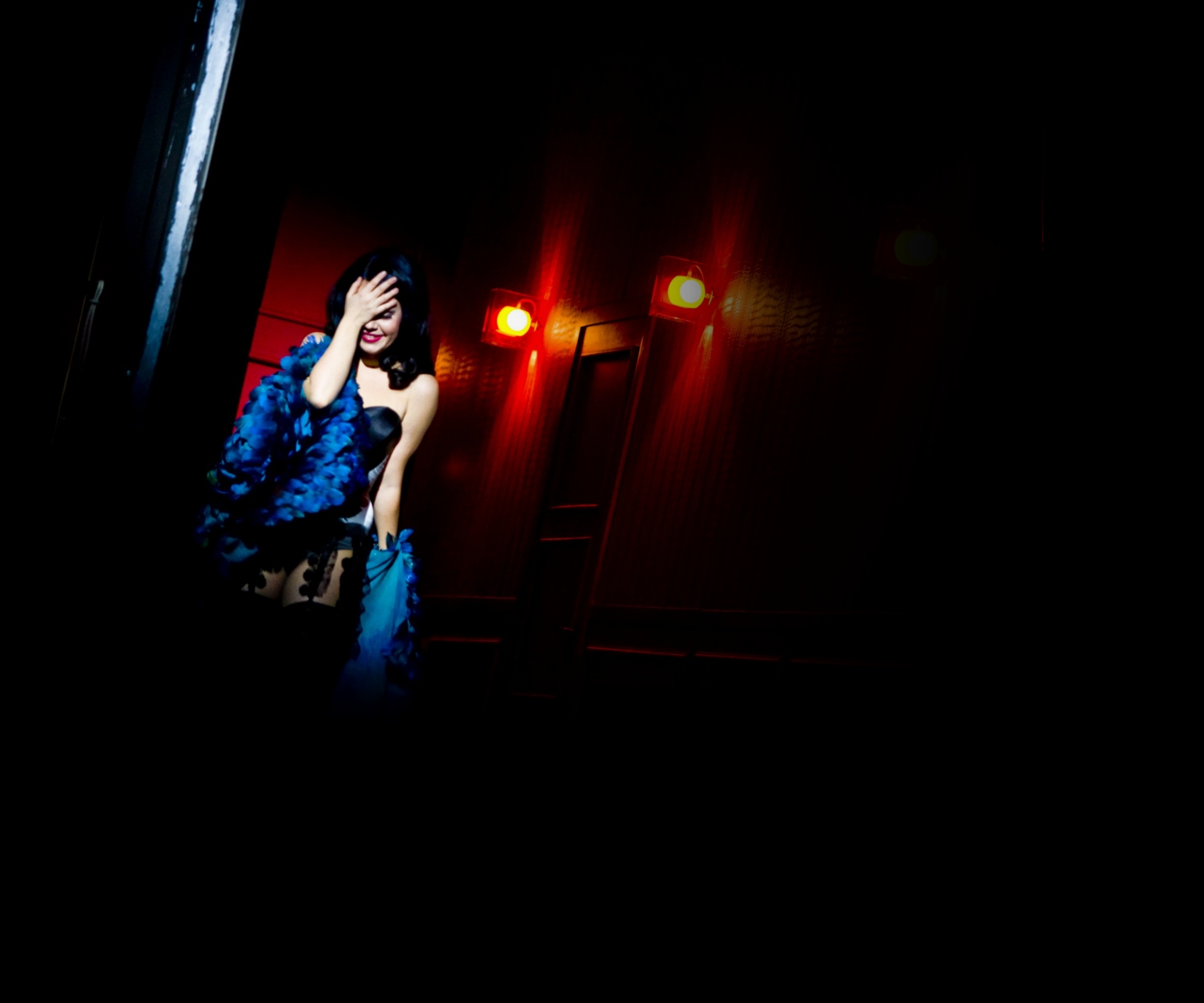
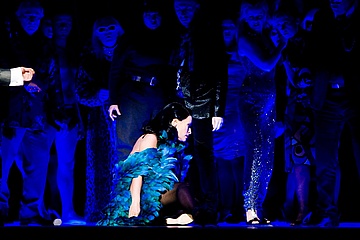
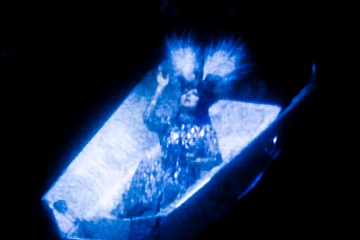
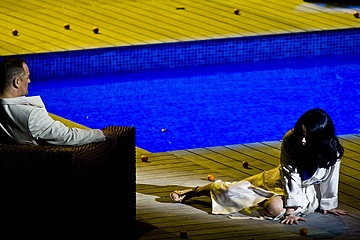
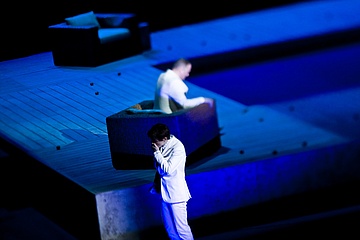
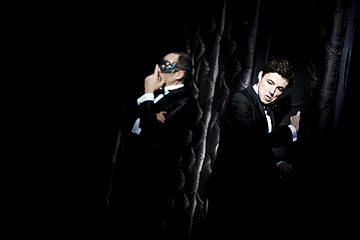
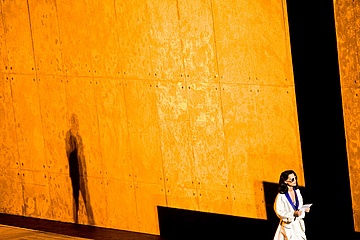
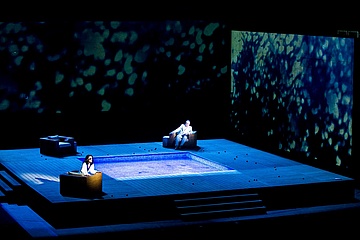
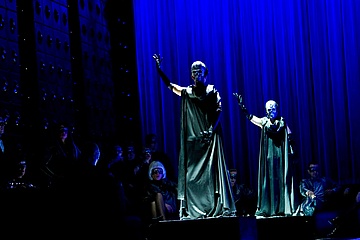
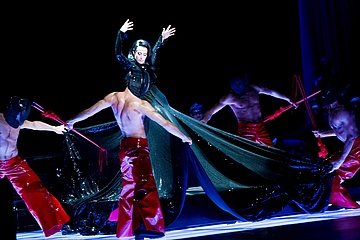
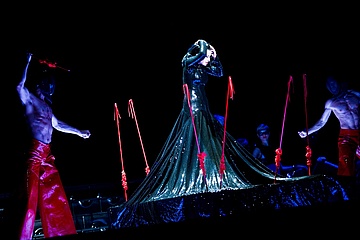
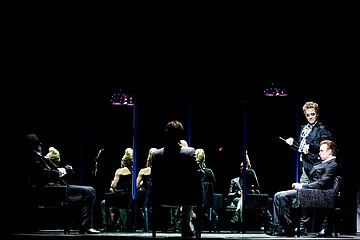
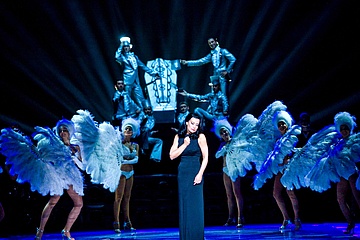
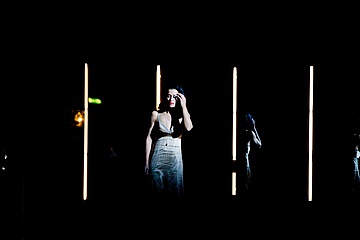
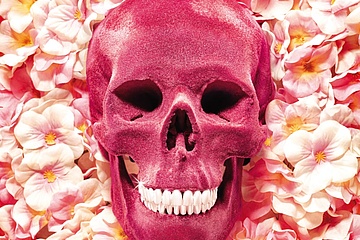
 Iwona Sobotka
Iwona Sobotka  Rafał Bartmiński
Rafał Bartmiński  Krzysztof Szumański
Krzysztof Szumański  Elżbieta Wróblewska
Elżbieta Wróblewska ![[Translate to English:]](/fileadmin/_processed_/7/9/csm_Katarzyna-Szymkowiak-2025_-_kwadrat_7c8f580f8f.jpg) Katarzyna Szymkowiak
Katarzyna Szymkowiak  Mateusz Zajdel
Mateusz Zajdel  Tomasz Rak
Tomasz Rak  Paweł Trojak
Paweł Trojak ![[Translate to English:]](/fileadmin/_processed_/6/f/csm_remigiusz_lukomski_kwadrat_05aa478a8d.jpeg) Remigiusz Łukomski
Remigiusz Łukomski  Łukasz Wroński
Łukasz Wroński  Mirosław Gotfryd
Mirosław Gotfryd  Ruslana Koval
Ruslana Koval  Tadeusz Szlenkier
Tadeusz Szlenkier  Stanislav Kuflyuk
Stanislav Kuflyuk  Igor Buczyński
Igor Buczyński  Jacek Kostoń
Jacek Kostoń ![[Translate to English:]](/fileadmin/media/img/ludzie/dyrygenci/patrick_fournilier_fot_arch_artysty_-_kwadrat.jpg) Patrick Fournillier
Patrick Fournillier  Mariusz Treliński
Mariusz Treliński ![[Translate to English:] Boris Kudlička](/fileadmin/_processed_/7/a/csm_Boris_Kudlicka_4424_www_8b991ee181.jpg) Boris Kudlička
Boris Kudlička  Tomasz Ossoliński
Tomasz Ossoliński  Gosia Baczyńska
Gosia Baczyńska  Tomasz Jan Wygoda
Tomasz Jan Wygoda  Piotr Gruszczyński
Piotr Gruszczyński  Marc Heinz
Marc Heinz  Mirosław Janowski
Mirosław Janowski 





